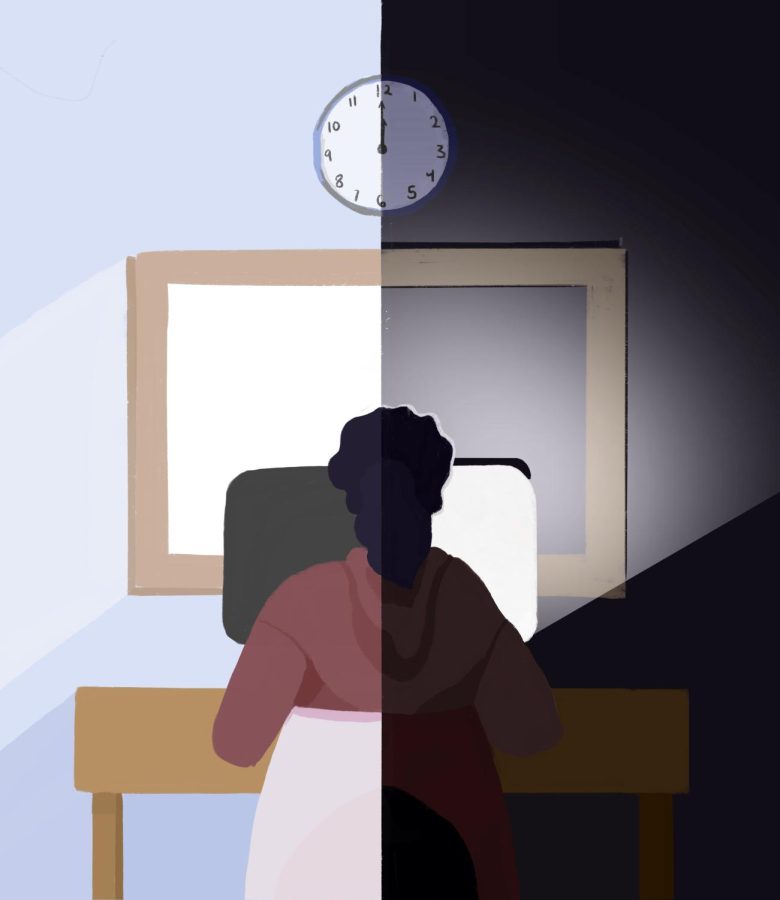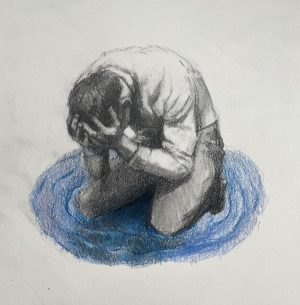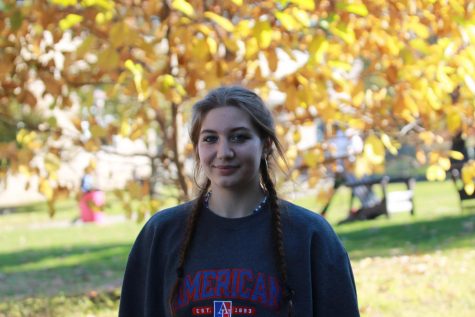Daylight savings does not save much
The science behind why students lose motivation as the days shorten
As daylight savings sets back our clocks student begin to face an increase in melatonin levels due to the early darkness. This has a direct correlation to serotonin levels, as well as students mental well-being.
December 8, 2022
On Nov. 6, daylight savings set our clocks back one hour, beginning students’ yearly cycle of dark bus rides home, increased exhaustion, and lack of motivation.
Daylight savings time (D.S.T.) is a twice-a-year ritual in which clocks are either set back one hour, or set ahead one hour. The history behind this custom stems from two theories.
The first originated from our agricultural lifestyles. It was said that farmers lobbied for an extra hour of daylight to complete their work, but this myth has since been debunked several times. The second claim is that daylight savings time (D.S.T.) was created by Benjamin Franklin as a way to conserve light in the evening, to make people more productive. This idea was altered by the industrial world in order to reap more economic benefits, such as more time in the day to shop, and a way to increase electricity bills.
But a less talked about problem with D.S.T is the decrease in motivation during school, and in students’ mental wellness. According to Cleveland Clinic psychologist, Dr. Susan Albers, D.S.T can cause an increased risk of seasonal affective disorder (S.A.D.)
Symptoms of seasonal affective disorder include feeling depressed, acting withdrawn, lacking motivation, struggling to concentrate and also changes in sleeping and eating habits.
“Seasonal affective disorder is often caused by changes in our circadian rhythm, that internal natural clock that runs our sleep, our mood and our appetite,” Albers said.
Our bodies struggle to assimilate that quickly when the number of hours in a day changes.
Senior Camila Arthur, found the lack of daylight affected her sleep schedule. She said, “When I get home I am already coming from sports or clubs and I am just as tired as I would be on a normal school day. But then it gets darker, which makes me want to go to sleep sooner.”
Additionally, senior Rachel Mafuru, also found the loss of time to be detrimental to her schoolwork. She said, “I could get home at six or seven o’clock and I’m already thinking it’s bedtime just because of how dark it is. It definitely leads me to think that I don’t have as much time as I actually do with my homework and studying. So it just leads to a lack of motivation for me personally,” she said.
These increased feelings of tiredness and exhaustion are not merely due to darkness, there is scientific evidence that justifies these students’ claims. Stefanie Carbone, part-time school counselor, explained that the increased darkness is linked to melatonin levels.
“That increase of additional darkness can increase melatonin levels, which leads to increased lethargy, meaning you have increased sleepiness, which can contribute to depression,” she said.
Carbone also sees an increase in students coming to the counseling office after the Daylight Savings shift. She said, “I have kids who are sleep deprived, and then I have students who are feeling lethargic and lacking motivation, but then I have kids who just don’t know what it is, but that they just don’t feel right,” she explained, “Your melatonin and serotonin levels are affected during these times; these are natural hormones in your body. So even if you’re the most upbeat person in the world, your body needs to adjust to different hormone levels, and some people have a harder time regulating it than others.”
Carbone reminds us that during the time of Daylight Savings to Winter Solstice (Dec. 21), it is important that students set aside time for their mental well-being. Whether that be taking breaks during the day, talking to someone, or picking up an enjoyable hobby, make sure you are addressing your needs.






